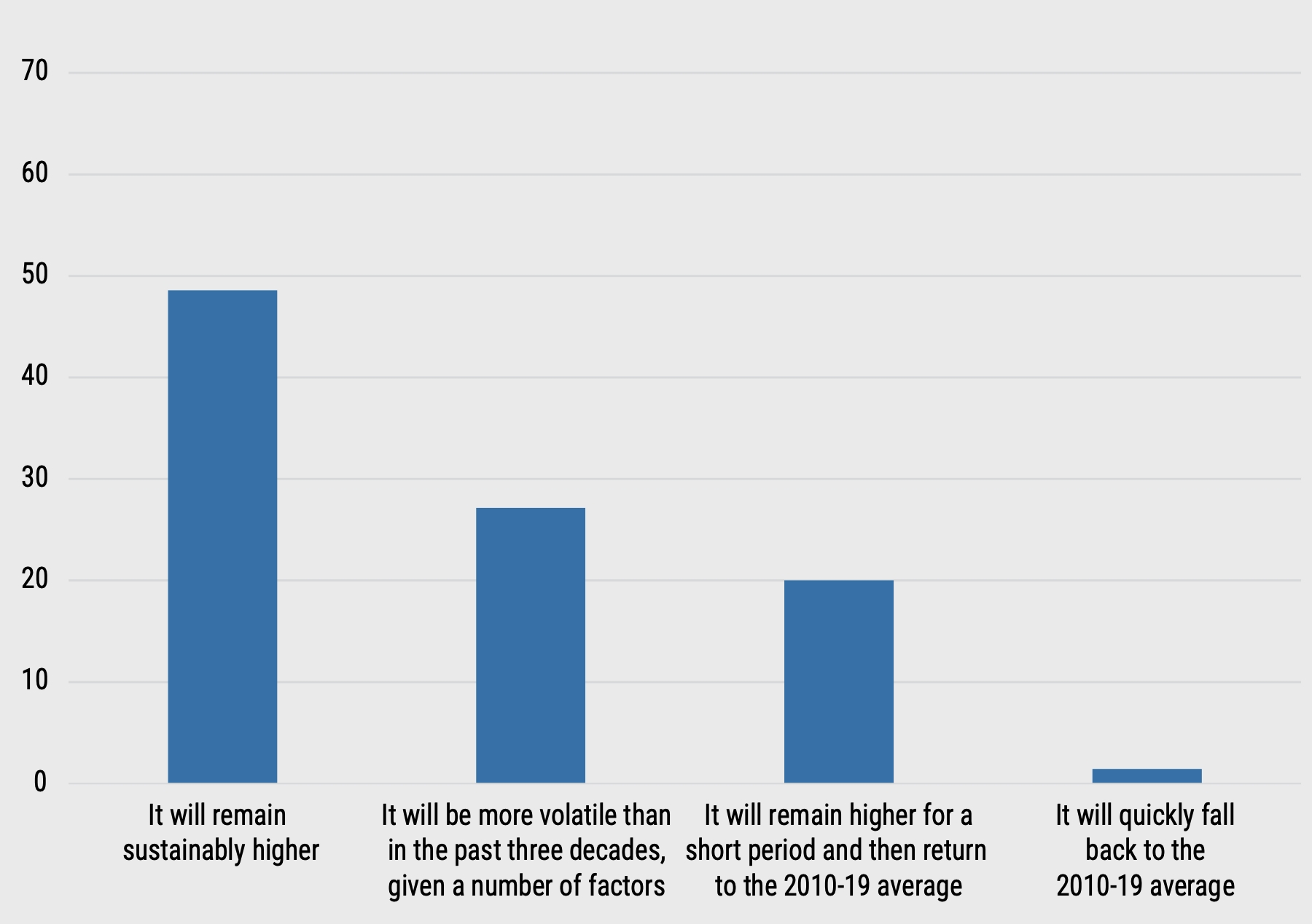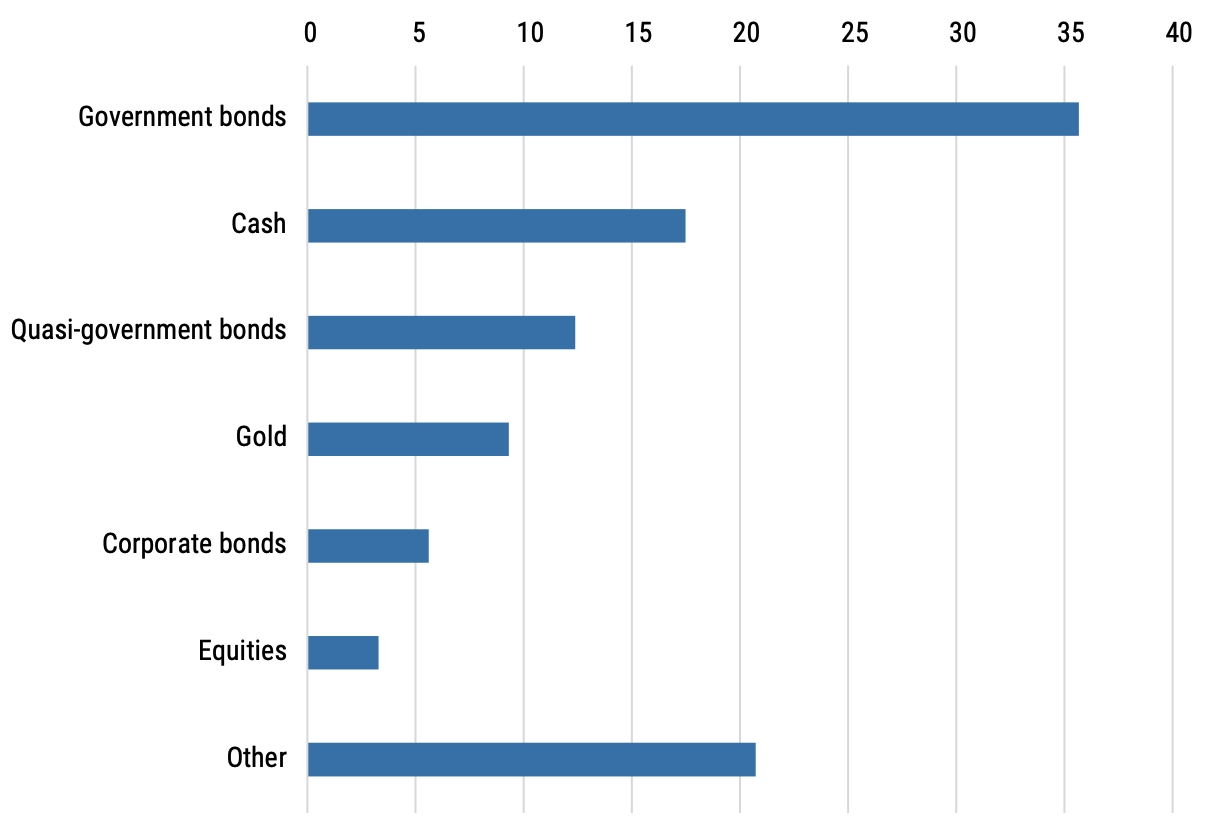Surveyed Central Bank Reserves Managers Say Inflation is Not ‘Transitory’, Likely to Remain High

Only 20% of surveyed central bank reserves managers still say that inflation will be “transitory,” as the US Federal Reserve (Fed) and other central banks insisted was the case until recently. Meanwhile, close to half of the managers say inflation is likely to remain elevated, per the latest edition of the OMFIF’s Global Public Investor report.
According to the Official Monetary and Financial Institutions Forum (OMFIF)’s report, even portfolio managers at central banks don’t stand behind central bank officials’ message that inflation was “transitory.” At the same time, it appears to be an open question whether they ever actually believed in it.
Per the report,
“For the past year or so, monetary policy-makers have been trying to convince markets that the return of inflation is transitory. It’s not a line that their central bank counterparts in the reserves management divisions are buying any more, if they ever did.”
According to the survey results published in the report, more than 75% of central bank reserves managers say that inflation will either remain “sustainably higher” or be “more volatile,” with about 50% saying they believe inflation will remain at elevated levels.
Meanwhile, only 20% of the respondents said they think inflation will return to the level from 2010-2019 “relatively quickly.”
The OMFIF report commented on the finding by saying that,
The answers suggest that reserves managers “don’t believe their central banking peers in charge of monetary policy have the tools to suppress the surge in inflation any time soon.”
Expectations for inflation over the next 24 months among central bank reserves managers:

Meanwhile, close to 90% of the reserves managers count inflation as one of the three most important factors affecting their performance. That marks a sharp change from last year when inflation “wasn’t even considered a major factor,” according to the report.
Investors today unfamiliar with inflation
The OMFIF reminded readers that many investors and policymakers today have little experience with inflation, given that it has been 30 years since inflation was considered an issue of concern in developed countries.
To make things worse, most reserves managers have mandates that restrict what they can invest in. This has become a problem since some of those restrictions are preventing reserves managers from buying assets that could help hedge against inflation, the report said.
To illustrate the lack of effective hedging, OMFIF pointed out that cash makes up the second-biggest component of central banks’ reserve portfolios with 17% on average, while government bonds make up close to 50%. By comparison, the traditional inflation hedge, gold, makes up less than 10% of the portfolios.
On the role gold plays for central banks, the report found that the metal has seen a slight uptick in popularity among reserves managers. While 65% of respondents said they invested directly in physical gold last year, 71% of respondents said the same this year.
Average portfolio composition:

The report added that the issue for most reserves managers now is that the real interest rate – the interest rate after adjusting for inflation – is deeply negative in most countries, and as low as -7% in some places.
At the same time, OMFIF pointed out that making changes to the investment approach followed by central banks is a slow process, sometimes taking up to two years. In the face of higher inflation and “sudden changes in the market environment,” portfolio managers are thus having a more difficult time adapting, the report argued.
The OMFIF is an independent think tank for central banking and economic policy globally. Its members include central banks, major asset managers, sovereign funds, pension plans, and banks, among others. The organization publishes the Global Public Investor report annually.
____
Learn more:
– Close to 1 in 3 Surveyed Hedge Funds Plan Crypto Investments – PwC
– Global Insurers Start Investing in Crypto Amid Risk-On Investment Approach
– Accenture Sees Strong Demand for Digital Assets Among Asian Investors, but Hesitancy Among Advisory Firms
– 7 in 10 Retail and Institutional Investors Plan to Buy More Crypto, Bitstamp Survey Finds
– 40% of Surveyed Lower-income Individuals Want to Use Bitcoin – Not to Make Money
– One in Seven Wealthy People Now Owns ‘Digital Assets’ – Survey




